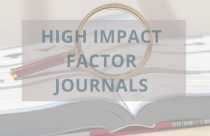Should Academic Journals Adopt Non-Profit Publishing Models?

Avoiding subscription fees and allowing academic work to be disseminated as widely as possible are some of the main goals for those who defend the idea of adopting non-profit publishing models. Many insist on the fact that universities and research centers do not really need to play the same game as big publishing houses. However, is it practicable to shift away from for-profit publishing models and work to create a new and non-profitable one?
Currently, some publishing houses charge subscriptions fees that many consider too high. If we take into account that many universities or research centers pay these rates to access the content their own researchers have created, it is understandable that some are willing to change to non-profit publishers that charge a much lower rate.
The Situation and Its Weaknesses
Don Fullerton, a professor of finance and Associate Director of the University of Illinois’ Institute of Government and Public Affairs, is of the opinion that Academia should not help publishing houses to generate those large profit margins. “Here’s the irony: the university pays us to conduct research, so we conduct the research and publish it, and then the publisher charges the university to subscribe to the journal,” he declared in an interview. “By publishing their work in for-profit journals that charge libraries nearly 10 times what non-profit journals do, academics and other researchers are essentially donating their labor and intellectual capital to ensure a high rate of return for a commercial enterprise,” he adds.
Two main goals converge in this conflict of interest. The main goal of researchers and academics is to disseminate their work and help to improve science and knowledge. On the other hand, publishers conduct private business, with the logical aim of generating economic benefits.
Big publishing houses have two aspects that make this situation possible: high reputation and well-regarded review systems. However, it is in the hands of universities and research centers to give reputation to other publishers. After all, they have the researchers that actually do the work. Therefore, the appropriate question would be: how are universities and research centers going to define their position?
Science as the Final Goal
According to Fullerton, reform efforts could be translated into savings for the universities, but there are also other reasons to consider supporting non-profit publishers. For instance, many insist that some centers can not pay such costs to access the content. This means that some publishing houses are leaving some researchers aside. Is this slowing down or affecting academic research worldwide? That is also why non-profit systems would help academics work together and be of benefit to science.
However, an adaptation to other systems looks like a difficult procedure. Obviously, they can not just stop collaborating with publishers from one day to the next, or to expect a new publishing house to make a name for itself in a couple of months. But even if the process would last years, betting on non-profit publishing models looks like a good solution for many. It can be the way to level the playing field and no longer consider money, but science as the final goal.









